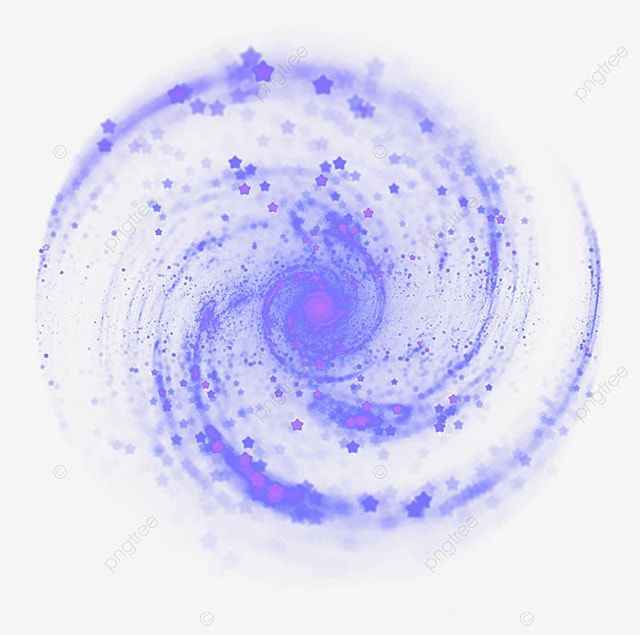ハロー効果:第一印象で歪む評価
行動心理が好きな やまひろです。
「ハロー効果」って、要はミーハーな心理のことなんです。
人間の心理の一つで、対象物に対して良い印象を持つと、その対象の評価全体が歪んでしまう現象を指します。
ハロー効果とは?
心理学者のエドワード・ソーンダイクによって名付けられた「ハロー効果」は、英語で「halo effect」と書きます。「halo」は「後光」や「光輪」を意味する言葉で、日本語では「後光効果」や「光背効果」と呼ばれることもあります。
ハロー効果の具体例
- 選挙:好感度の高い俳優が応援演説に参加すると、その俳優のイメージが政策の評価にも影響を与え、「この人が応援しているなら、政策も良いはずだ」と思ってしまう。
- 広告:人気芸能人が商品を宣伝すると、その芸能人のイメージが商品の評価にも影響を与え、「この人が宣伝しているなら、良い商品に違いない」と思ってしまう。
ハロー効果のメカニズム
ハロー効果は、ある特定の特徴(例えば、外見の良さ、人気、権威など)が、他の特徴の評価にも影響を与えることで起こります。
- 肯定的なハロー効果:ある特徴が良いと評価されると、他の特徴も良いと評価される傾向がある。
- 否定的なハロー効果:ある特徴が悪いと評価されると、他の特徴も悪いと評価される傾向がある。
ハロー効果の影響
ハロー効果は、私たちの日常生活の様々な場面で影響を与えています。
- 対人関係:初対面の人に対して、外見や服装などの第一印象が良いと、その人の性格や能力も良いと評価してしまうことがある。
- 就職活動:面接官は、応募者の外見や話し方などの第一印象に影響されて、その人の能力を過大評価したり、過小評価したりすることがある。
- 消費者行動:消費者は、商品のブランドイメージやパッケージデザインなどの第一印象に影響されて、商品の品質や性能を過大評価したり、過小評価したりすることがある。
ハロー効果に惑わされないために
ハロー効果は、私たちが無意識のうちに陥ってしまう心理的な罠です。しかし、ハロー効果に惑わされないように意識することで、より客観的な判断を下すことができます。
- 第一印象だけで判断しない:第一印象は大切ですが、それだけで判断せず、相手をよく観察し、理解するように努めましょう。
- 複数の情報源から情報を収集する:一つの情報源だけでなく、複数の情報源から情報を収集し、比較検討するようにしましょう。
- 自分の感情に気をつける:感情に流されて判断しないように、冷静に状況を分析するようにしましょう。
ハロー効果をポジティブに活用する
ハロー効果は、ネガティブな影響を与えることもありますが、ポジティブに活用することもできます。
- 自己演出:第一印象を良くするために、身だしなみや話し方などを工夫しましょう。
- プレゼンテーション:プレゼンテーションの冒頭で、聴衆の興味を引くような話をすることで、プレゼンテーション全体の良い印象を与えることができます。
- マーケティング:商品のブランドイメージを高めることで、消費者の購買意欲を高めることができます。
まとめ
ハロー効果は、私たちの日常生活に大きな影響を与える心理現象です。ハロー効果を理解し、意識することで、より客観的な判断を下し、より良い人間関係を築くことができます。
行動心理士 やまひろ
- 認定心理士:子ども心理・行動心理、メンタルミュージック心理
- ユニバーサルマナー2級
最後に
ココナラ占い
知らないおっさんが良いことを言っても、誰も耳を貸してくれないかもしれません。しかし、年商100億、起業して3年の若手社長の実行マインドには、きっと多くの人が耳を傾けるでしょう。
これは、ハロー効果の一例です。私たちは、権威や実績のある人の言葉には、より価値を感じ、耳を傾けやすい傾向があります。
ハロー効果は、私たちの日常生活の様々な場面で影響を与えています。ハロー効果を理解し、意識することで、より客観的な判断を下し、より良い人間関係を築くことができます。
参考文献
- Thorndike, E. L. (1920). A constant error in psychological ratings. Journal of Applied Psychology, 4(1), 25-29.
- Nisbett, R. E., & Wilson, T. D. (1977). Telling more than we can know: Verbal reports on mental processes. Psychological Review, 84(3), 231-259.
免責事項
この記事は、一般的な情報提供を目的としたものであり、特定の個人に対するアドバイスを提供するものではありません。特定の状況における判断や行動については、専門家の意見を参考にされることをお勧めします。
The Halo Effect: When First Impressions Distort Our Judgment
Hi, I’m Yamahiro, a behavioral psychologist.
The “Halo Effect” is essentially a tendency to be swayed by superficial impressions.
It’s a psychological phenomenon where a positive impression of one aspect of a person or thing leads to an overly positive assessment of their other, unrelated aspects. This concept was named by psychologist Edward Thorndike.
What is the Halo Effect?
The Halo Effect, also known as the “halo error” or “horn effect,” refers to the cognitive bias where our overall impression of a person influences how we perceive their specific traits or abilities.
Examples of the Halo Effect
- Elections: When a well-liked actor participates in a campaign speech, their positive image can influence how people perceive the policies they’re supporting, leading them to think, “If this person supports it, the policies must be good.”
- Advertising: When a popular celebrity endorses a product, their positive image can influence how people perceive the product, leading them to think, “If this person is promoting it, it must be a good product.”
The Mechanism of the Halo Effect
The Halo Effect occurs when a specific characteristic (e.g., attractiveness, popularity, authority) influences the evaluation of other characteristics.
- Positive Halo Effect: When one characteristic is evaluated positively, other characteristics tend to be evaluated positively as well.
- Negative Halo Effect: When one characteristic is evaluated negatively, other characteristics tend to be evaluated negatively as well.
The Impact of the Halo Effect
The Halo Effect influences various aspects of our daily lives.
- Interpersonal Relationships: When we meet someone for the first time, a positive first impression based on their appearance or attire can lead us to overestimate their personality or abilities.
- Job Hunting: Interviewers might be influenced by an applicant’s appearance or speaking style, leading to overestimation or underestimation of their abilities.
- Consumer Behavior: Consumers might be influenced by a product’s brand image or packaging design, leading to overestimation or underestimation of its quality or performance.
Avoiding the Halo Effect
The Halo Effect is a psychological trap we can fall into unconsciously. However, by being aware of it, we can make more objective judgments.
- Don’t judge based solely on first impressions: First impressions are important, but don’t rely on them alone. Observe and try to understand the person or thing better.
- Gather information from multiple sources: Don’t rely on just one source of information. Gather information from multiple sources and compare them.
- Be aware of your emotions: Don’t let your emotions cloud your judgment. Analyze the situation calmly.
Using the Halo Effect Positively
While the Halo Effect can have negative consequences, it can also be used positively.
- Self-presentation: Make a good first impression by paying attention to your appearance and communication style.
- Presentations: Start your presentation with an engaging story to create a positive overall impression.
- Marketing: Enhance your product’s brand image to increase consumer interest.
Conclusion
The Halo Effect is a psychological phenomenon that significantly impacts our daily lives. By understanding and being aware of the Halo Effect, we can make more objective judgments and build better relationships.
Yamahiro, Behavioral Psychologist
- Certified Psychologist: Child Psychology, Behavioral Psychology, Mental Music Psychology
- Universal Manners 2nd Grade
Finally
Coconala Fortune-telling
An unknown person giving good advice might not be taken seriously. However, a young entrepreneur with annual sales of 10 billion yen and 3 years of experience will likely attract a lot of attention.
This is an example of the Halo Effect. We tend to value and listen more to the words of people with authority and achievements.
The Halo Effect influences various aspects of our daily lives. By understanding and being aware of the Halo Effect, we can make more objective judgments and build better relationships.
References
- Thorndike, E. L. (1920). A constant error in psychological ratings. Journal of Applied Psychology, 4(1), 25-29.
- Nisbett, R. E., & Wilson, T. D. (1977). Telling more than we can know: Verbal reports on mental processes. Psychological Review, 84(3), 231-259.
Disclaimer
This article is intended for general informational purposes only and does not constitute advice for any specific individual. For decisions or actions in specific situations, it is recommended to consult with a professional.

